Support for Work-life Balance, Caregiving, and Childcare
MJC strives to support each and every one of our employees to showcase their best performance at work all the while being able to fully tend to their families, working toward a harmonious coexistence of home life and work.
Based on the philosophy of increasing productivity by way of building trusting relationships with our employees, we are proactively pushing for open, mutual communications with them, encouraging the uptake of paid leave, in order to realize true work-life balance.
Supporting the Next Generation
Rate of Return to Work Post Maternity Leave
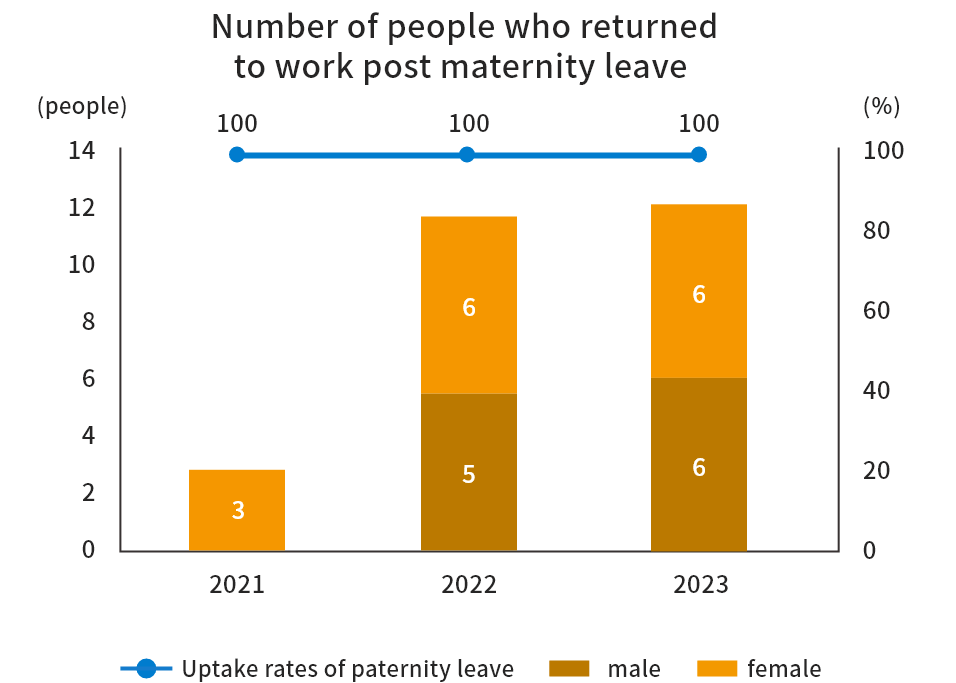
As we have been able to steadily and successfully implement an environment that allows work and childcare to coexist harmoniously, from 2021 to 2023, the rate of mothers who returned to work after maternity leave was 100 percent.
Percentage of people who returned to work after taking childcare leave
- 2021: 100% (Male 0, Female 3)
- 2022: 100% (Male 5, Female 6)
- 2023: 100% (Male 6, Female 6)
Rate of Working Mothers
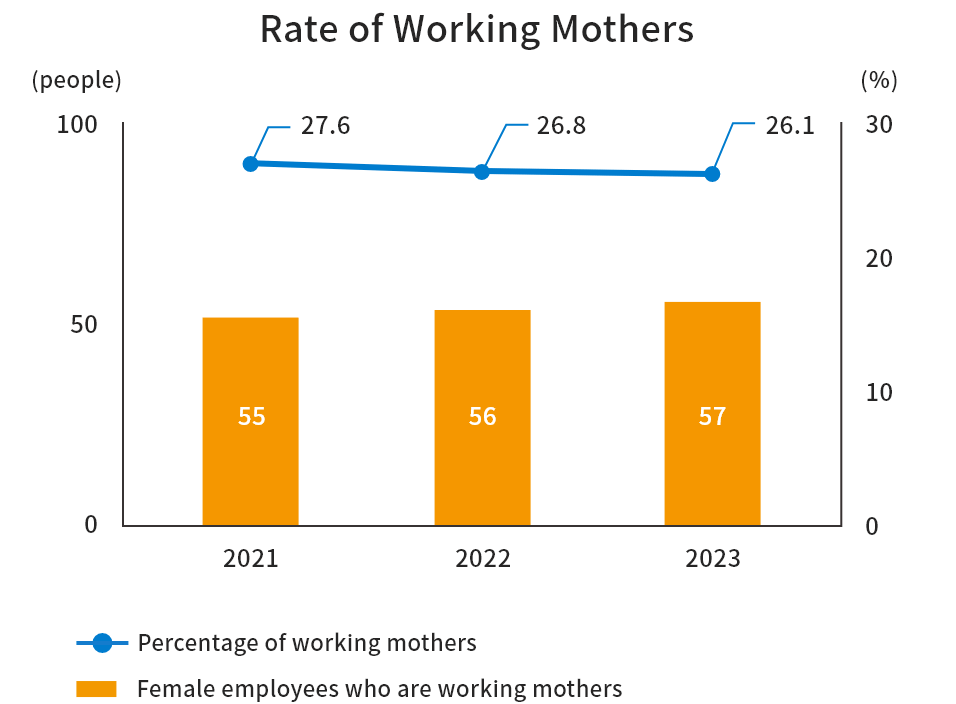
The following are figures relating to the percentages of female employees with children under 18 in the company.
- 2021: 27.6% (55 people)
- 2022: 26.8% (56 people)
- 2023: 26.1% (57 people)
We are continuing our efforts to create an environment where our female employees are able to continue working for us long-term with measures such as shorter working hours.
Paternity leave uptake
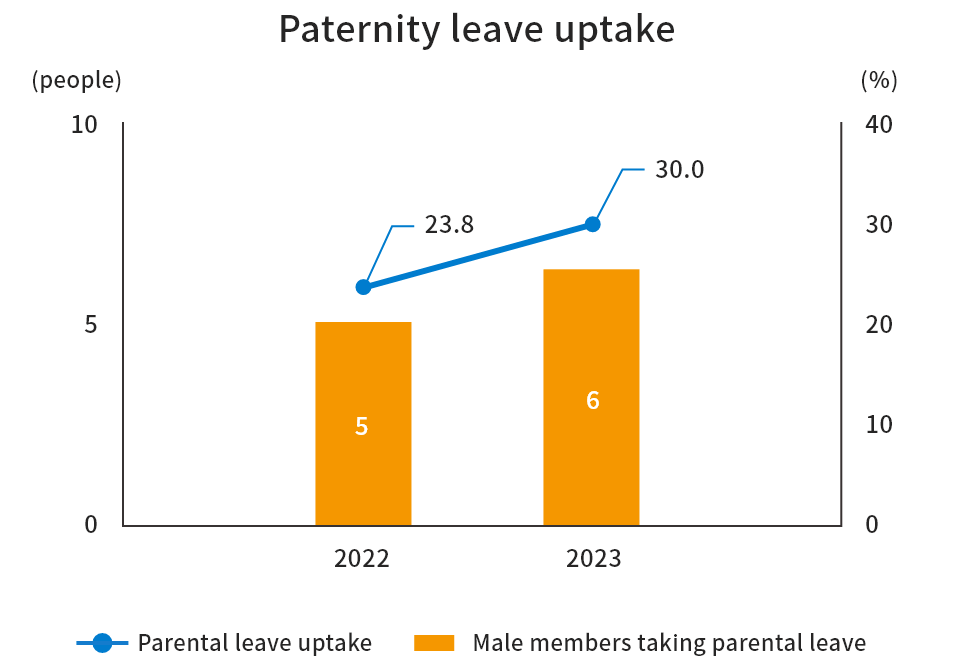
Below are the uptake rates of paternity leave.
- 2022: 23.8%(5 people)
- 2023: 30.0%(6 people)
We will promote creating a workplace environment in which employees can take leaves to provide childcare, regardless of gender.
Support for Caregiving and Childcare and Encouragement of Paid Leave Uptake

For caregivers and parents with preschool children, in addition to 5 days of paid leave per year specifically for providing care, we have also implemented a system that allows leave to be taken in hourly increments with shortened working hours.
We also actively encourage employees to take their paid leave. We are constantly adding implementations such as six-monthly checks by managers on leave balances to ensure that paid leave is taken.
Women's Empowerment Activities
Percentage of Female Employees in the Entire Company
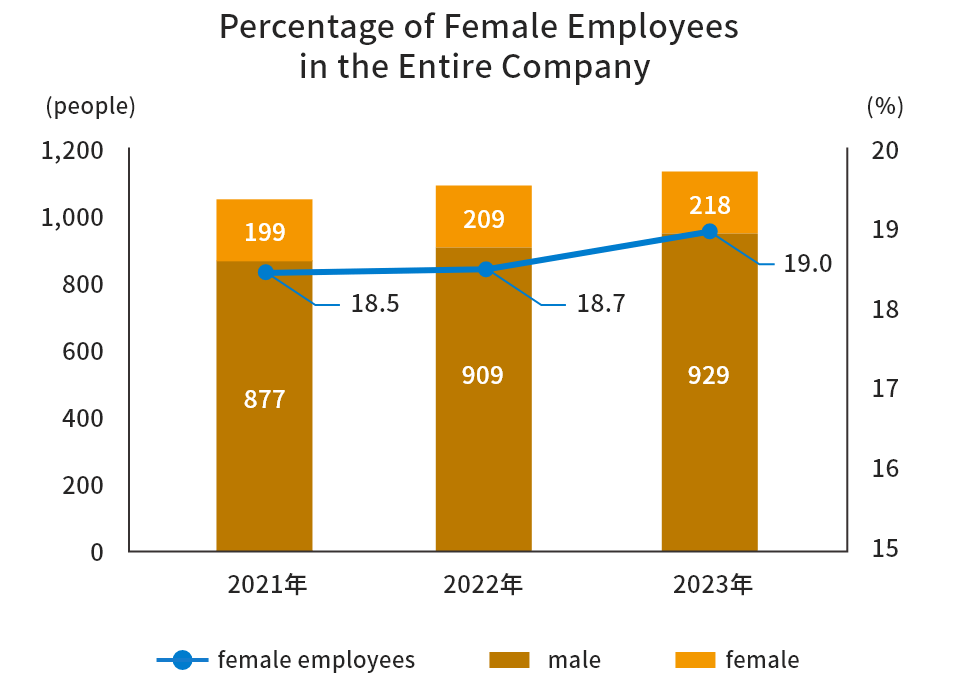
Below are the percentages of female members in the entire organisation.
- 2021: Approx 18.5% (199 out of 1,076 people, decreased 0.1%)
- 2022: Approx 18.7%(209 out of 1,118 people, increased 0.2%)
- 2023: Approx 19.0% (218 out of 1,147 people, increased 0.3%
We have achieved a gradual and steady increase in female employees.
Percentage of women in managerial positions
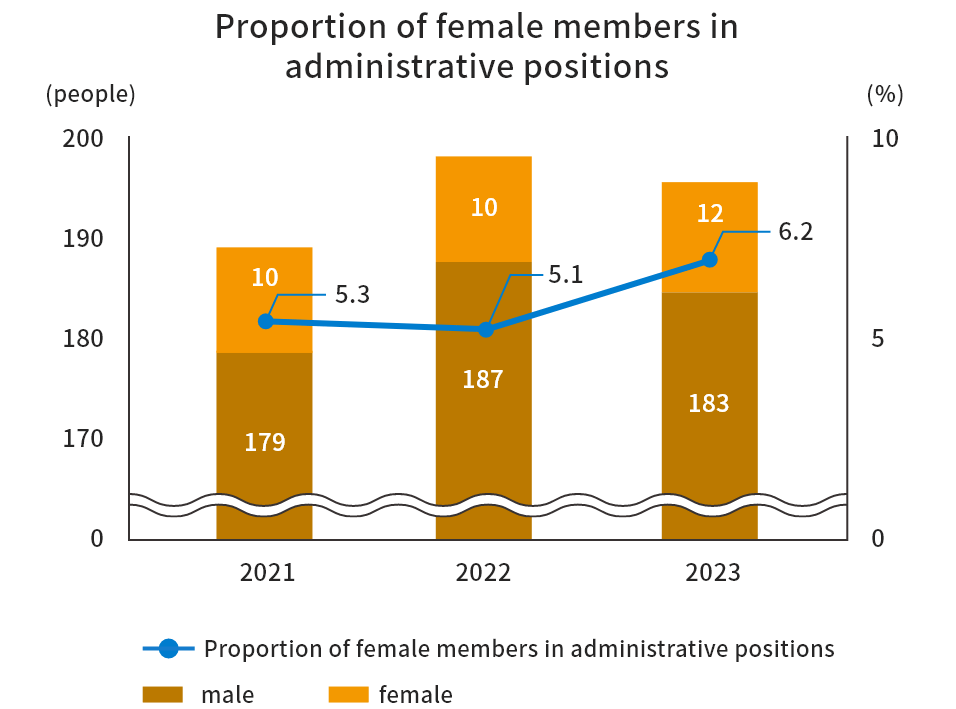
Proportion of female members in administrative positions.
- 2021: 5.3%(10 out of 189 people)
- 2022: 5.1%(10 out of 197 people, decreased 0.2%)
- 2023: 6.2%(12 out of 195 people, increased 1.1%)
We strive to create an environment where women are motivated to pursue managerial positions and can continue with their careers.
Wage gap between men and women (difference ratio of women’s wages to men’s)
| Category | Wage gap between men and women(Difference ratio of women’swages to men’s) |
|---|---|
| All labourers | 78.9% |
| Of those who are employed full time | 80.2% |
| Of those who are employed on a part-time or contract basis | - |
| *Of those who are employed on a part-time or contract basis, none are female members. | |
Annotations
Additional notes on data calculation
- Period
- Operational year 2023 (01 Jan 2023 – 31 Dec 2023)
- Included members
- Permanent staff, contracted staff
- Wage
- Pay, bonuses, allowances (various)
Supplementary information on the differences
The company does not set different conditions for entry-level salaries or subsequent salary increases and promotions based on gender. However, the low proportion of female employees in management positions (6.2%) is a cause of differences in wages between male and female members.
Promotion of activities of persons with disabilities
| June 2021 | June 2022 | June 2023 | |
|---|---|---|---|
| Employment rate of persons with disabilities | 2.39% | 2.31% | 2.29% |
| Required employment rate | 2.3% | 2.3% | 2.3% |
We support career development of persons with disabilities by understanding individual characteristics of their disabilities and discussing with each employee the tasks and roles that suit their aptitude. Currently, we have secured the legally mandated employment rate for persons with disabilities, but to comply with the planned increase in the legally mandated employment rate, we will further promote the development of the workplace environment and an understanding of diversity.
